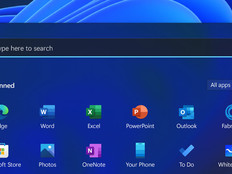Campus Management Uses Microsoft AI to Increase Engagement and Efficiency
Artificial intelligence is earning its time in the spotlight on college campuses. From boosting student retention to increasing academic opportunities, new data-driven tools are helping campus administrators, instructors and students streamline workloads and increase engagement.
CampusNexus, built by Campus Management, an education technology company, is one of these solutions. Custom algorithms and machine learning analyze nearly every touchpoint of the student lifecycle, from initial inquiries to post-graduate job searches. They can also handle the administrative side of higher education by sorting through thousands of applications and managing human resources and finance tasks.
The Campus Management solution won the Microsoft Partner of the Year Education Award in 2018. It’s built on Microsoft’s AI platform, Azure, and is now in more than 1,100 institutions in the United States and abroad.
“We deliver all of our software solutions on the Azure cloud,” Campus Management CEO Jim Milton says in a television interview with Cheddar TV. “That allows institutions to only pay for what they use. Ultimately it gives them a lot of flexibility so they can invest their dollars into academic delivery.”
MORE FROM EDTECH: See how machine learning helps colleges secure their networks.
Pennsylvania State’s AI Initiative Sees Cost Savings at Scale
Pennsylvania State University was an early adopter of AI, employing a universitywide customer relationship management solution from Campus Management in 2012. With 24 campuses and a rapidly growing online program, the undergraduate admissions process had grown unwieldy. In particular, the primary undergraduate program and the online program, called World Campus, were using two different recruitment and email campaign tools.
Kate Tornatore, CRM project manager at Penn State, says that combining the two tools into a single CRM eliminated barriers and saved money.
“By transitioning the functionality of those legacy systems into our CRM, we were able to decommission those systems,” she says in an interview with The EvoLLLution. “One of the biggest payoffs for Penn State is how the system has scaled with us, without a similar increase in costs to support it.”
Tornatore noted that within three years, the university had increased one-to-one communications 100 times and maintained information on 1.25 million individuals, giving Penn State a 360-degree view of prospects and applicants.
AI and Cloud Solutions Improve Student Outcomes and State Funding
At Arkansas State University-Newport, a community college, management needed a better technology solution for the school’s diverse population.
“We’re trying to get students to a point where they can make a living wage to change the lives of their families and make an impact in the community,” says Adam Adair, vice chancellor for finance and administration at ASU-Newport, in a Campus Management video.
Adair and his team replaced their legacy tools with Microsoft and cloud-based CampusNexus as its platform. The new technology helped support ASU-Newport’s complex needs as well as providing performance metrics to submit to the state, since Arkansas state funding is tied to student outcomes.
The result has been a win-win for both students and ASU-Newport, which was identified as the highest-performing two-year college in the state. Other achievements included a 12 percent increase in state funding, a 41 percent increase in credentials awarded, and growth in the student population by 30 percent over five years.
“We are succeeding in our mission of helping students achieve their academic and career goals while maximizing operational efficiency,” says Adair in a Campus Management case study. “And the underlying technology has played a significant role in this.”









